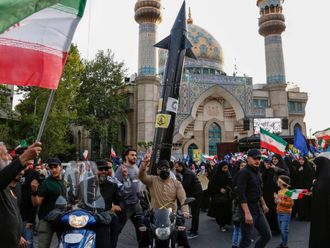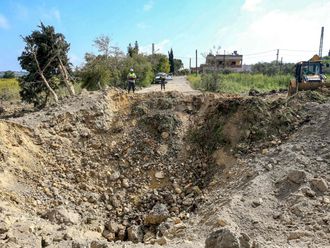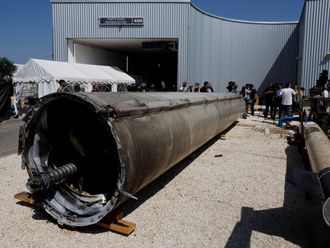Amman: Rights activists in Jordan on Monday called for stiffer punishment for violence in the family, after four women and a man were killed in “honour crimes” in just over a week.
Jordan has reformed its penal code, but loopholes allow judges to hand down lenient sentences, particularly if the family involved declines to press charges.
In all, 26 people were killed this year in attacks by relatives who claimed they were protecting the family’s honour, said Asma Khader, head of the Jordanian branch of Sisterhood Is Global, an advocacy group. This is an increase of more than 50 per cent from last year, said Khader.
In traditional patriarchal societies, alleged “offences” by women can include talking to a man who is not a relative or leaving the house without permission.
The latest case involved two sisters, aged 27 and 34, who were allegedly shot dead at a farm by two of their brothers and the husband of the younger woman.
The Jordan Times reported on Monday that the older woman died instantly last week and her younger sister died three days later, on Sunday. The daily quoted officials in the case as saying the suspects were charged with premeditated murder.
The newspaper said the sisters’ killing brought to five the number of suspected honour crimes since last week.
On October 8, an 18-year-old was arrested after allegedly killing his sister as she slept, because he found a mobile phone in her possession of which the family had no knowledge. A day later, a father and son allegedly killed a female relative and a man because the woman had left her family’s home without approval.
Khader said human rights organisations will try to lobby with the country’s recently elected parliament to move ahead with legal reforms.
“Family honour” as a mitigating factor was abolished in the previous round of reforms, and special courts have been established for such cases, Khader said.
However, a judge still has the discretion to reduce a sentence by half if the family refuses to press charges, a common occurrence in crimes involving relatives, she said. Activists also want to raise the minimum sentence for killings carried out in a “fit of fury” from three to seven years, she said.
Responding to the recent spate of killings, Musa Breizat, head of Jordan’s National Centre for Human Rights, also demanded to “toughen the laws”.
Breizat spoke after presenting the centre’s annual report on human rights violations in Jordan.
He cited a shrinking space for free expression as Jordan continues to crack down on extremist groups.
“Now we have a super tension between human rights ... in certain areas and the preservation of national security,” Breizat said. He said the government was “not very efficient” in distinguishing between freedom of expression and hate speech.
Breizat said eight journalists were detained in 2015 for articles or social media posts, the highest number yet. He said there had been an increase in such detentions, but did not provide comparisons to previous years.












